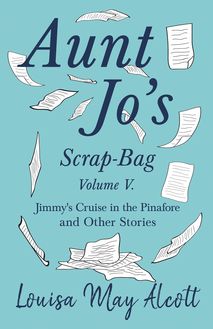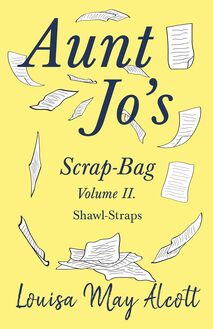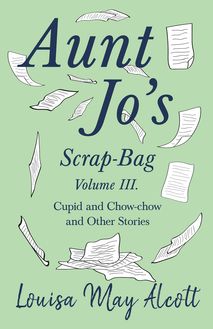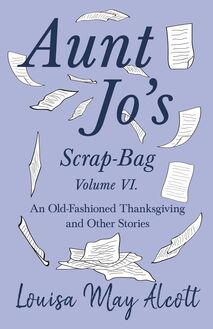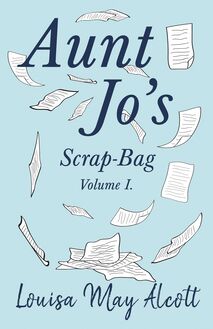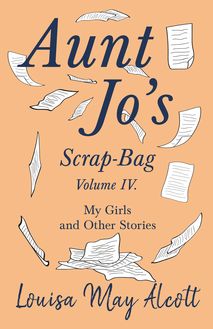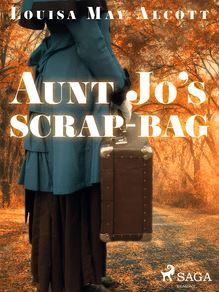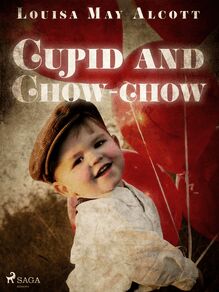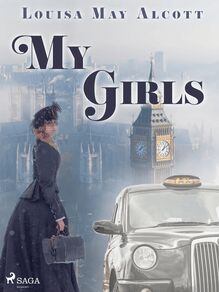-
 Univers
Univers
-
 Ebooks
Ebooks
-
 Livres audio
Livres audio
-
 Presse
Presse
-
 Podcasts
Podcasts
-
 BD
BD
-
 Documents
Documents
-
- Cours
- Révisions
- Ressources pédagogiques
- Sciences de l’éducation
- Manuels scolaires
- Langues
- Travaux de classe
- Annales de BEP
- Etudes supérieures
- Maternelle et primaire
- Fiches de lecture
- Orientation scolaire
- Méthodologie
- Corrigés de devoir
- Annales d’examens et concours
- Annales du bac
- Annales du brevet
- Rapports de stage
La lecture à portée de main
Vous pourrez modifier la taille du texte de cet ouvrage
Découvre YouScribe en t'inscrivant gratuitement
Je m'inscrisDécouvre YouScribe en t'inscrivant gratuitement
Je m'inscrisEn savoir plus
Vous pourrez modifier la taille du texte de cet ouvrage
En savoir plus

Description
Sujets
Informations
| Publié par | Read Books Ltd. |
| Date de parution | 11 octobre 2019 |
| Nombre de lectures | 0 |
| EAN13 | 9781528788632 |
| Langue | English |
| Poids de l'ouvrage | 2 Mo |
Informations légales : prix de location à la page 0,0500€. Cette information est donnée uniquement à titre indicatif conformément à la législation en vigueur.
Extrait
AUNT JO'S SCRAP-BAG
VOLUME V. JIMMY'S CRUISE IN THE PINAFORE ETC .
By
LOUISA MAY ALCOTT
This edition published by Read Books Ltd. Copyright © 2019 Read Books Ltd. This book is copyright and may not be
reproduced or copied in any way without
the express permission of the publisher in writing
British Library Cataloguing-in-Publication Data
A catalogue record for this book is available from the British Library
Contents
Louisa May Alcott
JIMMY'S CRUISE IN THE PINAFORE
TWO LITTLE TRAVELLERS
A JOLLY FOURTH
SEVEN BLACK CATS
ROSA'S TALE
LUNCH
A BRIGHT IDEA
HOW THEY CAMPED OUT
MY LITTLE SCHOOL-GIRL
WHAT A SHOVEL DID
CLAMS
KITTY'S CATTLE SHOW
WHAT BECOMES OF THE PINS
Louisa May Alcott
Louisa May Alcott was an American Novelist, best known for the classic Little Women (1868) and its sequels Little Men and Jo’s Boys. Alcott was born on 29 November, 1832 in Germantown, Pennsylvania, USA, and was raised by her transcendentalist parents. The family, despite their connections with the American intellectual elite, suffered severe financial hardship and Alcott frequently helped to support the household. In 1840, after several financial setbacks, most notably following the experimental school set up by Louisa May’s father, the family moved to a cottage along the Sudbury River in Massachusetts. In 1843, the family moved again to the Utopian Fruitlands Community , an agrarian commune, dedicated to natural living. They finally settled in a house they named Hillside in 1845. As a result of this peripatetic childhood, Alcott’s schooling was mainly received from her father, who was an incredibly strict disciplinarian, high thinker and advocate of plain living. This instilled a determination and strong work ethic in Alcott, who worked as a teacher, governess, seamstress and writer in her early years. As an adult, Alcott was a strong abolitionist and a feminist advocate, becoming the first woman to register to vote in Concord, in a school board election. During the civil war, Alcott worked as a nurse in the Union Hospital at Georgetown, D.C. She collected all her letters, often dryly humorous, in book entitled Hospital Sketches (1863); a work which brought Alcott critical acclaim. Following on from this success, Alcott wrote several novels under the pen name A. L. Barnard, most notably A Long Fatal Love Chase (1866) and A Modern Mephistopheles (1875). However, Little Women and its sequels were Alcott’s major successes; the first book dealt with the childhood of Meg, Jo, Beth and Amy; characters strongly based on Alcott’s childhood accompanied by her own three sisters. The sequel, Good Wives (1869) dealt with their progression into adulthood, whilst Little Men (1871) detailed Jo’s life at the school she founded alongside her husband. Jo’s Boys (1886) completed the ‘Family Saga’. The Character Jo was loosely based on Alcott’s own life, however unlike the heroine, Alcott never married, commenting that ‘I am more than half-persuaded that I am a man's soul put by some freak of nature into a woman's body ... because I have fallen in love with so many pretty girls and never once the least bit with any man.’ Alcott was firmly part of the Gilded Age , along with authors such as Elizabeth Stoddard and Rebecca Harding Davis, she addressed women’s issues in a modern and candid manner. Alcott continued to write until her death on 6 March, 1888. The cause of death is uncertain; she suffered chronic health problems, including vertigo and typhoid, the latter of which was treated with mercury. However recent analysis of her illnesses has suggested an autoimmune disease such as Lupus. She is buried in Sleepy Hollow Cemetery, Concord, Massachusetts, on a hillside known as Author’s Ridge.
SIR JOSEPH PORTER, K.C.B.
"I am the monarch of the Sea, The ruler of the Queen's Navee,— When at anchor here I ride, My bosom swells with pride, And I snap my fingers at a foeman's taunts.
COUSIN HEBE.
And so do his sisters, and his cousins, and his aunts His sisters and his cousins! Whom he reckons by the dozens, And his aunts!
RALPH RACKSTRAW.
"I am the lowliest tar That sails the water. And you, proud maiden, are My captain's daughter."
JOSEPHINE.
"Refrain, audacious tar. Your suit from pressing; Remember what you are, And whom addressing."
LITTLE BUTTERCUP.
For I am called Little Buttercup,—dear Little Buttercup, Though I never could tell why; But still I'm called Buttercup,—poor Little Buttercup, Sweet Little Buttercup I!
CAPTAIN CORCORAN.
Fair moon, to thee I sing Bright regent of the heavens; Say, why is every thing Either at sixes or at sevens!
BILL BOBSTAY, THE BOS'N
He is an Englishman! For he himself has said it, And it's greatly to his credit That he is an Englishman.
DICK DEADEYE.
"I'm ugly too, aint I?"
TOM TUCKER, MIDSHIPMITE.
I.
JIMMY'S CRUISE IN THE PINAFORE
HOW HE SHIPPED.
A boy sat on a door-step in a despondent attitude, with his eyes fixed on a pair of very shabby shoes, and his elbows resting on his knees, as if to hide the big patches there. But it was not the fact that his toes were nearly out and his clothes dilapidated which brought the wrinkles to his forehead and the tears to his eyes, for he was used to that state of things, and bore it without complaint. The prospect was a dull one for a lively lad full of the spring longings which sunny April weather always brings. But it was not the narrow back-street where noisy children played and two or three dusty trees tried to bud without sunshine, that made him look so dismal. Nor was it the knowledge that a pile of vests was nearly ready for him to trudge away with before he could really rest after doing many errands to save mother's weary feet.
No, it was a burden that lay very heavily on his heart, and made it impossible to even whistle as he waited. Above the sounds that filled the street he heard a patient moan from the room within; and no matter what object his eyes rested on, he saw with sorrowful distinctness a small white face turned wistfully toward the window, as if weary of the pillow where it had laid so long.
Merry little Kitty, who used to sing and dance from morning till night, was now so feeble and wasted that he could carry her about like a baby. All day she lay moaning softly, and her one comfort was when "brother" could come and sing to her. That night he could not sing; his heart was so full, because the doctor had said that the poor child must have country air as soon as possible, else she never would recover from the fever which left her such a sad little ghost of her former self. But, alas, there was no money for the trip, and mother was sewing day and night to earn enough for a week at least of blessed country air and quiet. Jimmy did his best to help, but could find very little to do, and the pennies came in so slowly he was almost in despair.
There was no father to lend a strong hand, and Mrs. Nelson was one of the "silent poor," who cannot ask for charity, no matter how much they may need it. The twelve-year-old boy considered himself the man of the family, and manfully carried as many burdens as his young shoulders would bear; but this was a very heavy one, so it is no wonder that he looked sober. Holding his curly head in his hands, as if to keep it from flying asunder with the various plans working inside, he sat staring at the dusty bricks in a desperate frame of mind.
Warm days were coming, and every hour was precious, for poor Kitty pined in the close room, and all he could do was to bring her dandelions and bits of green grass from the Common when she begged to go in the fields and pick "pretties" for herself. He loved the little sister dearly, and, as he remembered her longing, his eyes filled, and he doubled up both fists with an air of determination, muttering to himself,—
"She shall go! I don't see any other way, and I'll do it!"
The plan which had been uppermost lately was this. His father had been a sailor, and Jimmy proposed to run away to sea as cabin boy. His wages were to be paid before he went, so mother and Kitty could be in the country while he was gone, and in a few months he would come sailing gayly home to find the child her rosy self again. A very boyish and impossible plan, but he meant it, and was in just the mood to carry it out,—for every other attempt to make money had failed.
"I'll do it as sure as my name is Jim Nelson. I'll take a look at the ships this very night, and go in the first one that will have me," he said, with a resolute nod of the head, though his heart sank within him at the thought. "I wonder which kind of captains pay boys best? I guess I'll try a steamer; they make short trips. I heard the cannon to-day, so one is in, and I'll try for a place before I go to bed."
Little did desperate Jimmy guess what ship he would really sail in, nor what a prosperous voyage he was about to make; for help was coming that very minute, as it generally does, sooner or later, to generous people who are very much in earnest.
First a shrill whistle was heard, at the sound of which he looked up quickly; then a rosy-faced girl of about his own age came skipping down the street, swinging her hat by one string; and, as Jimmy watched her approach, a smile began to soften the grim look he wore, for Willy Bryant was his best friend and neighbor, being full of courage, fun, and kindness. He nodded, and made room for her on the step,—the place she usually occupied at spare moments when they got lessons and recounted their scrapes to each other.
But to-night Willy seemed possessed of some unusually good piece of news which she chose to tell in her own lively fashion,
-
 Univers
Univers
-
 Ebooks
Ebooks
-
 Livres audio
Livres audio
-
 Presse
Presse
-
 Podcasts
Podcasts
-
 BD
BD
-
 Documents
Documents
-
Jeunesse
-
Littérature
-
Ressources professionnelles
-
Santé et bien-être
-
Savoirs
-
Education
-
Loisirs et hobbies
-
Art, musique et cinéma
-
Actualité et débat de société
-
Jeunesse
-
Littérature
-
Ressources professionnelles
-
Santé et bien-être
-
Savoirs
-
Education
-
Loisirs et hobbies
-
Art, musique et cinéma
-
Actualité et débat de société
-
Actualités
-
Lifestyle
-
Presse jeunesse
-
Presse professionnelle
-
Pratique
-
Presse sportive
-
Presse internationale
-
Culture & Médias
-
Action et Aventures
-
Science-fiction et Fantasy
-
Société
-
Jeunesse
-
Littérature
-
Ressources professionnelles
-
Santé et bien-être
-
Savoirs
-
Education
-
Loisirs et hobbies
-
Art, musique et cinéma
-
Actualité et débat de société
- Cours
- Révisions
- Ressources pédagogiques
- Sciences de l’éducation
- Manuels scolaires
- Langues
- Travaux de classe
- Annales de BEP
- Etudes supérieures
- Maternelle et primaire
- Fiches de lecture
- Orientation scolaire
- Méthodologie
- Corrigés de devoir
- Annales d’examens et concours
- Annales du bac
- Annales du brevet
- Rapports de stage
